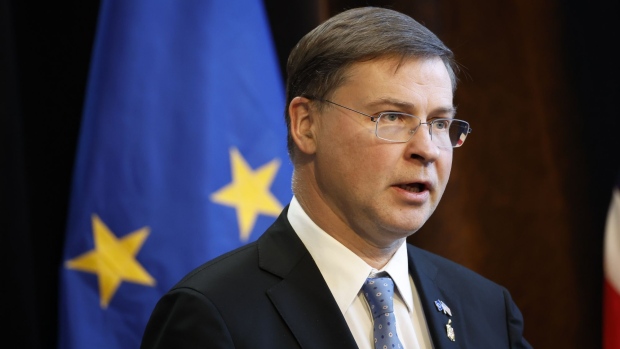The European Union and the US are close to an agreement on raw materials used in batteries that would allow EU companies access to some of the same benefits in President Joe Biden’s green investment plan as Washington’s free-trade partners, according to the bloc’s trade chief Valdis Dombrovskis, Bloomberg reports.
Dombrovskis told Germany’s Augsburger Allgemeine newspaper that the EU and US will be “able to solve some problems, but certainly not all of them” in ongoing negotiations on Biden’s Inflation Reduction Act.
Asked if there had been progress, he cited “a good agreement on tax rebates for US electric vehicles, as well as an exemption for the leasing of EVs from what he called discriminatory conditions.” He added that there were still “major differences in the area of renewable energies and hydrogen.”
“An agreement is also within reach for the battery industry,” the paper quoted Dombrovskis as saying. “European companies are to be treated in the same way as free trade partners of the USA.”
The US climate package includes about $500 billion in new spending and tax breaks over a decade to promote US manufacturing and services and gives certain exceptions for countries that have free-trade agreements with the US like Canada, Mexico and Australia.
Its focus on boosting American industry angered trade partners from Asia and Europe who said it discriminated against their companies, particularly carmakers.
Dombrovskis, who will travel to the US early next month, said March will be “crucial” in the talks, noting that the Treasury in Washington is due to publish guidance on the climate package at some point during the month.
Asked about the status of the Transatlantic Trade and Investment Partnership between the EU and US, he said he didn’t see any chance of resuming the stalled negotiations, which he said had failed due to “problems on both sides,” including over agriculture.
“We are looking for other forms of cooperation and have set up a joint council on trade and technology,” Dombrovskis said. “Instead of aiming for a comprehensive free trade agreement, we need to find sectoral forms of cooperation.”


